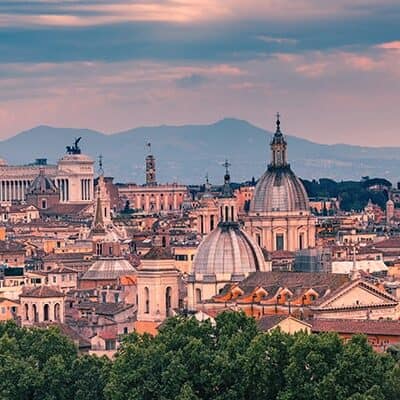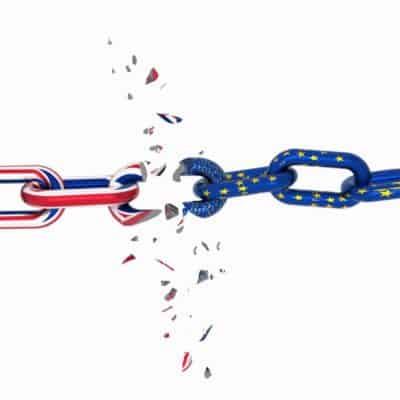This publication and the organizations that support it take on an uncommon task. We believe the Bible is the divinely inspired word of God; a textbook for life that cannot be superseded by tradition. We believe that the standard of righteousness it illustrates is both eternal and universal. As a chronicle of God’s dealings with man it is an invaluable guide, reasserting its relevance in every generation. We believe not only that Jesus was the Christ, through Whom alone we can receive salvation, but in the GOOD NEWS He preached about repentance and the coming Kingdom of God. How about you? Do you “believe in God” in a philosophically detached, comforting sort of way? Or do you believe God is true to His Word, fully able to keep His promises and uphold His judgments?
It is a distinction worth making. One that runs afoul of the dogma of many denominations. “For the word of God is quick, and powerful, and sharper than any two-edged sword, piercing even to the dividing asunder of soul and spirit, and of the joints and marrow, and is a discerner of the thoughts and intents of the heart” (Hebrews 4:12). Was your conversion painless? Were there no bad habits to overcome, no friendships that suffered, no employment issues, no family complications? More likely it’s an ongoing struggle, a battle against our own inclinations that hopefully we are winning.
Understanding the relationship between Christ and the law can be difficult. There is more than enough disagreement on the subject, though this need not be so. There is no dispute that Jesus kept the law. They needed false witnesses to condemn Him. This would not have been the case had there been real infractions. Should we not emulate His example? He said, “…one jot or one tittle shall in no wise pass from the law, till all be fulfilled” (Matthew 5:18). With faith, repentance, and baptism we escape the penalty already incurred. Through Jesus Christ we are pardoned, but like the woman taken in adultery we should “sin no more” (John 8). The principles remain intact and in effect, thus the ongoing need for repentance and the warning in Hebrews 10:26: “For if we sin willfully after that we have received the knowledge of the truth, there remaineth no more sacrifice for sins.”
However you want to slice it, a Christian is responsible for living a righteous life. “Examine yourselves, whether ye be in the faith; prove your own selves. Know ye not your own selves, how that Jesus Christ is in you, except ye be reprobates?” (2 Corinthians 13:5) Hebrews 10 already made it clear, you do not want to be a reprobate. God knows if you are sincere. He knows what you are capable of and, based on that, what He expects of you. That is made plain in the parable of the talents in Matthew 25. Romans 12 talks about “your reasonable service” and utilizing the gifts each one of us is given. It is an intimidating prospect but chances are you are already on the hook for it. James 4:17 reads, “Therefore to him that knoweth to do good, and doeth it not, to him it is sin.”
Our individual responsibility is clear. Does it differ somehow when applied on a societal level? Doesn’t the Bible illustrate that there is only so much God will tolerate? Before the flood it says, “The earth also was corrupt before God, and the earth was filled with violence” (Genesis 6:11). Abraham’s progeny did not inherit the promised land until the iniquity of its inhabitants was “full.” It states again and again that disobedience brings wrath and righteousness restrains it. Elijah thought Israel was totally lost, but God told him, “Yet I have left me seven thousand in Israel, all the knees which have not bowed unto Baal, and every mouth which hath not kissed him” (1 Kings 19:18).
The time did come when God let them go into captivity, both Israel and Judah. Couldn’t that have been avoided? Too often we ignore God, at least until disaster strikes. Jeremiah was sent to warn Judah, “As the thief is ashamed when he is found, so is the house of Israel ashamed; they, their kings, their princes, and their priests, and their prophets. Saying to a stock, Thou art my father; and to a stone, Thou hast brought me forth: for they have turned their back unto me, and not their face: but in the time of their trouble they will say, Arise, and save us. But where are thy gods that thou hast made thee? let them arise, if they can save thee in the time of thy trouble: for according to the number of thy cities are thy gods, O Judah. Wherefore will ye plead with me? ye all have transgressed against me, saith the Lord” (Jeremiah 2:26-29). As the old cliché says, those who do not know history are doomed to repeat it.
How do we measure up today? Compare society to the Ten Commandments. No other gods? Faith is rarely what people consider most important. Idols? It’s too obvious to even address at this time of the year. Taking God’s name in vain? You’d have to keep ear plugs in and avoid all media not to hear it. The Sabbath? Next! Honor your father and mother? You tell me. Murder? It is estimated that there are almost half a million worldwide per year. Adultery? One clue is that half of marriages in the U.S. end in divorce. Stealing? Employees of our largest retailers are not even allowed to confront thieves caught in the act. False witness? Revelation 21:8 says, “and all liars, shall have their part in the lake which burneth with fire and brimstone: which is the second death.” Covetousness? The world economy would probably crash without it, sad as that is to admit.
We need God’s protection, and we need to be the kind of righteous people that restrain His wrath. Quietly, diligently, humbly living decent and productive lives. Individually we are the first line of defense, yet we are unavoidably part of a whole; a town, a city, a nation. Philippians 2 talks about obedience, about working out your own salvation. Verse 4 reads, “Look not every man on his own things, but every man also on the things of others.” It says Jesus took on the “form of a servant.” Active, outgoing concern is a primary Christian responsibility. Enough of it will elevate society as a whole. Just judges, safe streets, fair prices and wages, everything the governments of the world claim to want to provide, will never survive among unprincipled people.
The effects are amplified when applied to leadership. There is so much information to be gleaned from the historical books of the Old Testament on this subject. It’s almost monotonous, especially through the books of Judges and Kings. The cycle of transgression, oppression, repentance, and deliverance, varied by the character of the current leader or king. The influence of the institutions of government is undeniable. God intended Israel to be a nation of laws, applicable to all. How did ignoring that work out for them?
Let’s not be under any delusions about the similarity of our situation. The United States was founded as a nation of laws to prevent the abuse of power by monarchy. There are other forms of domineering absolutism threatening the world today. The type of centralization and despotism pictured in prophecy is not compatible with the nation-states we currently inhabit. Any move in that direction, particularly by the most influential countries in the world, is worth noting. The United States has been the guarantor of Israel’s security since its modern inception and the primary force worldwide in all of our lifetimes. How important is Jerusalem in prophecy?
Like Israel anciently, we have forgotten our God. Our laws trespass into the jurisdiction of the Almighty. Our sources of information deceive willfully. Our officials, elected or otherwise, are hypocritical and self-seeking. Most would prefer to be distracted by some vile or insipid entertainment anyways. Will God continue to bless and protect a nation that barely renders lip service? These are the types of societal flaws that bring destruction! You can see it in the newspaper and on TV, you might even find it on social media. These are the changes we are watching for, changes in the character of the people as a whole. No news anchor or politician is exempt. No corporation gets a free pass.
Ours is not an easy task. We must watch out for ourselves, our families and neighbors, and our societies and inasmuch as they reflect us, our institutions. We can’t possibly know how many righteous individuals are out there, anonymously restraining the wrath of God. We pray that there are more than enough and endeavor to be among their number. What we can do is examine entertainment, business, and government to see if it reflects or encourages Godly values and behavior. If you saw an accident about to happen you would prevent it if possible, right? Especially you that “know to do good.”
Change is afoot in this world, particularly in Western democracies which would be expected to have the most say in their own destinies. Historically Christian nations, founded on immutable law, would prefer not to remember that about themselves. Liberty of conscience has been perverted into something it was never intended to mean. Is our responsibility not to speak up, to intervene and, if possible, prevent disaster? The issues we must address are sensitive. They involve religion, they have become political as politicians have sought to control more aspects of our lives.
As David wrote in Psalm 127:1, “Except the LORD keep the city, the watchman waketh but in vain.” No amount of warning will save an unrighteous people, but the responsibility to warn remains. Like a Christian’s duty to his neighbor or the watchman of Ezekiel 33, don’t become guilty through inactivity––for remaining silent when you could have prevented a tragedy! Watch, like Christ commanded in the parable of the wise and foolish virgins. Watch, like He commanded His disciples in Matthew 24: “Take heed that no man deceive you.”
No matter how unpleasant the task may become, our duty remains. Much of what needs to be discussed is not comprehensible without some understanding of the history, values, and prophecies of the Bible. Paul wrote of this struggle. In Hebrews 5 he says, “For when the time ye ought to be teachers, ye have need that one teach you again which be the first principles of the oracles of God; and are become such as have need of milk, and not of strong meat.”
We all have different needs. We are at different points in our individual spiritual development. On the other hand our goal is the same –– to be part of the family of God, members of His soon coming kingdom. Edify, enlighten, and encourage one another, according to the gifts you have been given. Together we can accomplish a mighty work of witness and warning to this world! “Let your loins be girded about, and your lights burning; And ye yourselves like unto men that wait for their lord, when he will return from the wedding; that when he cometh and knocketh, they may open unto him immediately. Blessed are those servants, whom the lord when he cometh shall find watching.” (Luke 12:35-37).










